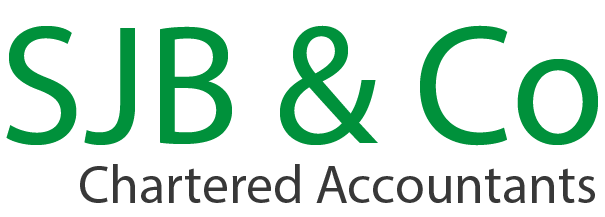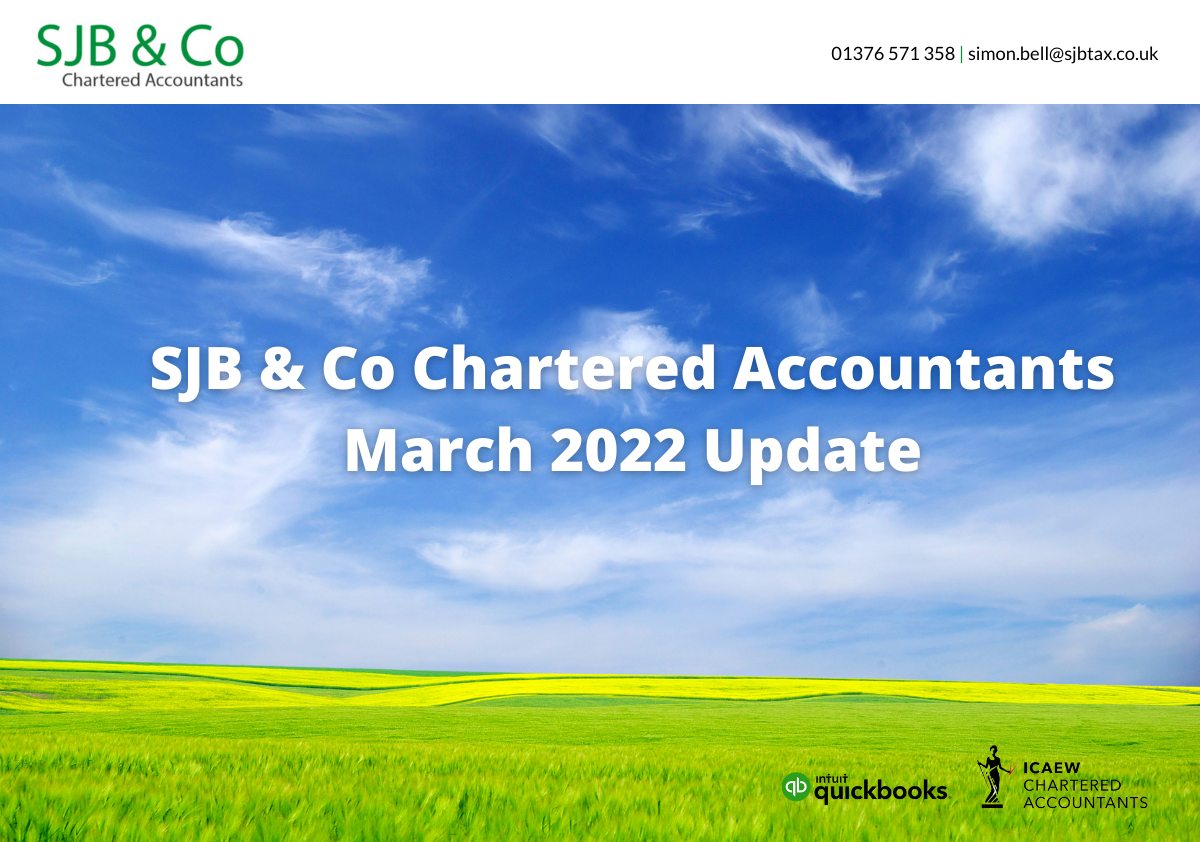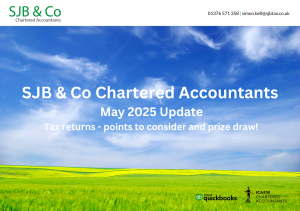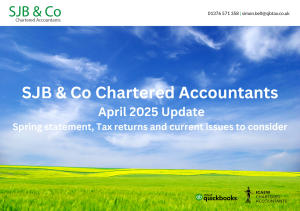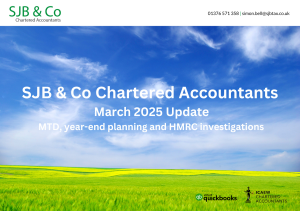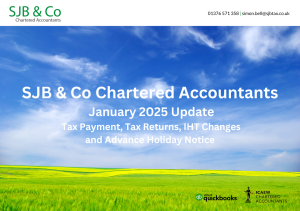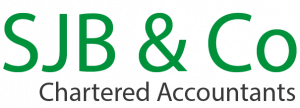There is just over a month to go before the end of the tax year. If you have not already started to do so it is time to start reviewing your finances to consider any actions required by 5 April. If your business year-end is also at the end of March then there will be additional issues to consider.
You may have seen comment in the press or on the TV about Making Tax Digital (MTD) and the need to keep accounting records digitally and file quarterly returns. Below is a brief note on MTD before moving on to year-end issues.
MTD for Income Tax – is this relevant to you?
Do you currently trade as any of these?
- As a sole trader
- As a partnership
- As a landlord
If you answered “Yes” to any of the above then Making Tax Digital will affect you if your turnover is £10,000 or more.
Under MTD for Income Tax rules you will have to keep your financial records digitally and for at least 5 years. You will be required to make quarterly returns as well as an end of year statement for each business that you have.
Your digital records will need to digitally link with HMRC’s systems.
We do not generally advise using a spreadsheet to keep your financial records as:
- The records need to be kept for at least 5 years AND it is too easy to delete or overwrite a spreadsheet
- The spreadsheet needs to be digitally linked with HMRC’s systems.
We recommend that you move your financial records to our preferred cloud accounting software, e.g. Quickbooks or Xero.
As part of MTD for Income Tax, Sole Traders and Partnerships will need to consider moving their financial year so it aligns with the Tax Year.
Further details will follow on the transfer to MTD and the steps required NOW to ensure a smooth transition. We will be contacting clients who do not have a 31 March / 5 April year-end so that we can support you with a change in accounting date and accounting systems changes. Businesses could end up paying nearly 2 years of tax in 2023/24 without careful planning.
Year-end tax considerations for individuals
It is important to make use of available reliefs and allowances as for many reliefs it is a case of use it or lose it.
Income tax issues to consider:
- Have you considered your options to maximise pension contributions for 2021-22? The maximum you can pay is £40,000 (subject to taper for high income) though this can be increased where there is unused relief from prior years. Contributions can be made for non-taxpayers up to £2,880 net that can be useful for low income spouses and children / grandchildren. Investment advice should be sought from a qualified advisor.
- Company director/shareholders may need to consider any dividends or bonuses to be taken from their company before the end of the tax year. With the additional 1.25% tax to fund the NHS shareholders may wish to consider advancing the payment of dividends in to the current tax year.
- Company car drivers whose private petrol is paid for by their employer may be advised to repay any private fuel provided and avoid the car fuel benefit charge for 2021-22. The key is to calculate if the tax saved is more than the cost of any fuel provided for private purposes.
- Company car provision has been declining in recent years due to the increasing benefit in kind tax charge. If you are considering an electric car then the tax treatment is currently beneficial for company provision. Benefit in kind charges are currently very low and generous deductions are available for the company.
- Don’t forget to use your ISA allowance. In this way you can invest up to £20,000 in the current tax year and any interest earned, dividends or capital gains will be tax-free. Over a number of years, substantial amounts can build up in ISAs to provide tax free income and gains.
- There are no limits to the amount of gift aid donations you can make. These contributions extend your basic rate tax band and are an effective strategy for avoiding the higher and marginal rates of income tax. Charitable donations are also one of the few remaining reliefs that you can carry back, in certain circumstances, to the previous tax year. Couples should consider arranging their giving so by the higher income partner.
- For longer term planning, to lower the impact of higher rate tax (or marginal rates), consider sharing ownership of income producing assets with your spouse, especially if your spouse pays no income tax, or tax at lower rates.
- A number of specialist investments qualify for income tax deductions. They include: the Enterprise Investment Scheme, investments in certain Social Enterprises, Seed Enterprise Investment Schemes and Venture Capital Trusts. Income tax relief varies between 30% and 50% of the qualifying investments. You will need to consider the commercial risks as well as the tax advantages.
- If you are investing in Crypto assets, you need to be aware that transactions in Crypto assets are taxable transactions and will generally be treated as capital transactions giving rise to a capital gain.
The above covers some of the income tax issues which should be considered prior to the year-end. In a separate newsletter we will cover capital gains and IHT issues for individuals as well as issues for businesses to consider.
For more information or to discuss any issues raised above please contact Simon Bell by phone on 01376 571358 or email [email protected] . This article is written in general terms and cannot be relied on to cover specific situations; applications of the principles set out will depend on the particular circumstances involved. It is recommended that you take professional advice before acting or refraining from acting on any material in this article.
